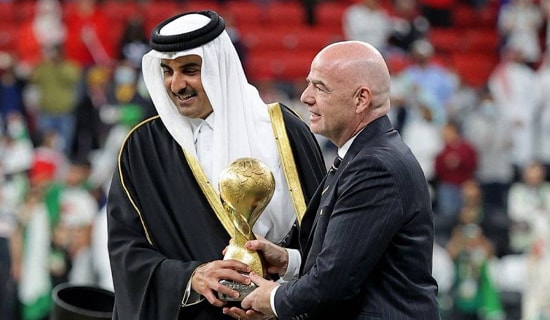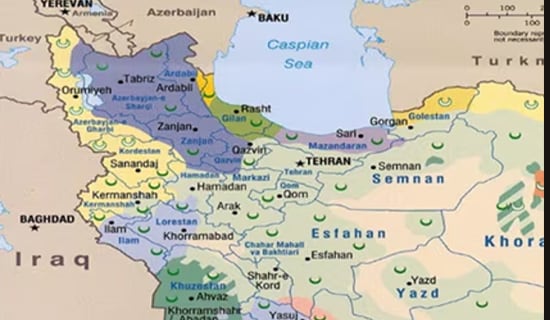
Pakistani cleric Zahidur Rashidi
Ahmadi Muslims in Pakistan were declared to be non-Muslims under a law enacted in 1974 by Pakistani Prime Minister Zulfikar Ali Bhutto. The law paved the way for social ridicule and religious discrimination of Ahmadis in Pakistan, who are pejoratively dismissed as Ahmadis or as Qadianis, after the town of Qadian in northern India where the Ahmadiyya movement began. Islamic clerics accuse the Ahmadi Muslims of not believing Prophet Muhammad to be the final prophet, and hence a strong religious movement is underway in Pakistan and also in India against Ahmadi Muslims.
In recent decades, Ahmadi Muslims have been publicly ridiculed in Pakistani society, attacked by Islamic extremists, and implicated under the blasphemy laws of Pakistan, which carry the death penalty. Islamic clerics have demanded that they be removed from government and military jobs, and Ahmadi Muslim students have been expelled from schools.
Ahmadi Muslims are legally prevented from calling themselves Muslims or describing their places of worship as mosques. Nobel Prize laureate for physics Dr. Abdus Salam, an Ahmadi Muslim, was not celebrated in Pakistan for his achievement; rather, even his grave in Pakistan was declared to belong to a non-Muslim.
In a recent article published on the popular Pakistani blog "Pak Tea House," Lahore-based lawyer Yasser Latif Hamdani called for recognizing Ahmadis as Muslims in line with the viewpoint of Muhammad Ali Jinnah, the founder of Pakistan. In the article, titled "Are Ahmadis Non-Muslims?" Hamdani stated: "I am forced to say that I am inclined to accept Jinnah's view and reject the collective wisdom of our sovereign legislature [that declared Ahmadis as non-Muslims]."
In another article, titled "Qadianis Should Join the Mainstream of Muslims," renowned Pakistani Islamic scholar Maulana Zahidur Rashidi, secretary-general of Pakistan Shariat Council, cited a case of a local mosque in Gujarat where "Muslims and Qadianis [Ahmadi Muslims] used to pray together, until 1974, when the Pakistani parliament banned them as non-Muslims."
Islamic clerics say that Mirza Ghulam Ahmad (1835-1908), the spiritual leader of Ahmadi Muslims, claimed to be a prophet. In his article, Maulana Zahidur Rashidi recalls a conference in which he says he told Ahmadi Muslims of two scenarios for the future that awaited those claiming prophethood: "Addressing them, I told them that at the time of the Prophet Mohammad (peace be upon him) four people had claimed to be prophets and had gathered a crowd of their followers; two of them were killed, while the others expressed repentance and accepted Islam."
Following are excerpts from Yasser Latif Hamdani's article[1]; following that are excerpts from Islamic scholar Zahidur Rashidi's article:[2]
Article by Yasser Latif Hamdani, December 15, 2011
"Zulfikar Ali Bhutto's National Assembly Imagined Itself the Islamic Equivalent of the Council of Nicaea; [It] Saw It Fit – Primarily at the Instigation of the Prime Minister [Bhutto] and His Law Minister – To Declare an Entire Sect [of Ahmadi Muslims as] Non-Muslim"
"This week [in mid-December 2011] the Large Hadron Collider at CERN [in Switzerland] inched closer to the discovery of the Higgs Boson, or the God Particle as it were. In this extraordinary story of human achievement, Dr. Abdus Salam is a key player who put Pakistan on the map of theoretical physics. In his homeland though, a group of self-styled champions of Islam have started a posthumous campaign of scurrilous slander claiming that Dr. Salam was giving out nuclear secrets.
"Forget that even a confirmed bigot like General Zia [-ul-Haq, the military ruler of Pakistan] held a ceremony in our only Nobel Prize winner's honor, or that no one ever accused Dr. Salam of any such thing; in Pakistan to be a hero you have to actually transfer technology to Iran, Libya, and North Korea.
"Now consider the case of 11-year-old Sitara Akbar [who set world records passing O-Level mathematics, English, and science]. Every Pakistani and his mother in law are citing her as a crowning national achievement, blissfully oblivious of the fact that she is an Ahmadi. To them her religion is suddenly unimportant or irrelevant, or is it? How many Sitara Akbars have been expelled from our schools for being Ahmadi? How many productive citizens of this republic have been killed and maimed for believing differently?
"Zulfikar Ali Bhutto's National Assembly imagined itself the Islamic equivalent of the Council of Nicaea [council of bishops]. Just as that ancient bastion of Christian orthodoxy excommunicated Unitarian Christians for not believing in the trinity of the father, son and the Holy Ghost, the National Assembly [the lower house of Pakistani parliament] saw it fit – primarily at the instigation of the Prime Minister [Bhutto] and his law minister – to declare an entire sect [of Ahmadi Muslims as] non-Muslim.… Pakistan's National Assembly located Islam in the principle of the finality of Prophethood [i.e. that Muhammad was the last prophet of god].
"This act of our sovereign legislature stood in sharp contrast to the view of this nation's founding father. On 5 May, 1944, in response to demands of the orthodox vis-a-vis Ahmadis, [Pakistan's founder M. A.] Jinnah made it absolutely clear that anyone who professes to be a Muslim is a Muslim and [is] welcome in the Muslim League and that those who were raising the issue [of Ahmadi Muslims not being Muslims] were trying to divide the Muslims."
"Muhammad Ali Jinnah, the Founding Father of Pakistan [Said] that Ahmadis are Muslims, If They Say They are Muslims and No One, Not Even the Sovereign Legislature, has the Right to Say Otherwise"
"Here I am forced to say that I am inclined to accept Jinnah's view and reject the collective wisdom of our sovereign legislature. There are several reasons which may be cited in this regard:
"First and foremost, Pakistan is bound by the United Nations charter. Therefore, Pakistan is bound to ensure freedom of religion for all its citizens; and freedom of religion means freedom of religion according to the definition of the subject of the said freedom.
"Identity is subjective, not objective. The state of Pakistan or any other state cannot tell an Ahmadi that he is not a Muslim because it is intrinsic to the faith of an Ahmadi. This is an inviolable, inalienable right as part of right to life which every state in the world is bound to protect. If Ahmadis say they are Muslims, they ought to be accepted as such.
"Pakistan is a signatory to the ICCPR [International Covenant on Civil and Political Rights] and without reservations since June 2011. Therefore every piece of legislation that discriminates against Ahmadis or forces a label upon them [of being non-Muslim] is ultra vires the ICCPR.
"The Islamic argument: According to the Holy Prophet (PBUH) anyone who utters the Kalima Shahadah is a Muslim. None of the Kalimas, including the Primary Kalima Shahadah contains any reference to the principle of the finality of Prophethood as understood by the Muslim majority today.
"Finally, because by conduct and promise, [the] Pakistani state is stopped from claiming otherwise. In 1947, Pakistan laid claim to Qadian [now a town in Indian Punjab] as a Muslim holy place, a counter-blast to Sikh claims on Nankana Sahib and Hassan Abdal [both in Pakistan now]. Similarly in the 1946 elections, which is the basic referendum on the question of Pakistan, Ahmadi votes were instrumental in getting Muslims Pakistan. These are undeniable facts of history.
"Therefore, fully aware of the stigma attached to this statement, I concur with Quaid-e-Azam [Great Leader] Muhammad Ali Jinnah, the founding father of Pakistan that Ahmadis are Muslims if they say they are Muslims and no one, not even the sovereign legislature, has the right to say otherwise."
Article by Zahidur Rashidi, January 2, 2012
"Muslims and Qadianis Used to Pray Jointly in This Mosque [in Gujarat District] … Until 1974, When the Parliament [of Pakistan] Declared Qadianis to be Non-Muslim"
"I had an opportunity to attend a meeting held in memory of the martyr Master Sarfaraz Ahmad, at Goleki village in Gujarat district [Pakistan], on December 24 [2011]. Master Sarfaraz Ahmad was martyred two months ago, on October 20, 2011, by indiscriminate shooting, and it is said that about 40-50 bullets were found in his body.
"Goleki is an old village where an ancient mosque is the apple of discord between Muslims and Qadianis [followers of the Ahmadiyya sect]. Master Sarfaraz Ahmad's two cousins were also martyred earlier in this regard. One Qadiani [i.e. Ahmadi Muslim] was also killed in this dispute, while another Muslim, Farhan Qayyum, was martyred.
"The mosque, which is about 350 years old, had been a prayer place for the Muslims from its very inception, but in 1922 the imam 'Imamudin' of this mosque became a follower of the Qadiani [sect], and then Qadianis got hold of the mosque. A member of his family, Akmal Qadiani, earned much fame due to a notorious couplet that he wrote in praise of Mirza Ghulam Ahmad Qadiani [the founder of the sect]. The couplet makes a part of his poem in which, God forbid, he has said: 'Whoever wants to see Mohammad, [he] should see Ghulam Ahmad in Qadian.'
"Muslims and Qadianis used to pray jointly in this mosque… until 1974, when the Parliament [of Pakistan] declared Qadianis to be non-Muslim and the two – Muslims and Qadianis – began praying separately, and separate arrangements were made in the mosque itself.
"In 1992, at the time of the reconstruction of the mosque, the dispute between Muslims and Qadianis took a severe turn, and Qadianis forcefully dislodged Muslims from the mosque. [In return], the Muslims went to court, and the magistrate of the area, Iliyas Gul, sealed the mosque, which is still sealed to this day.
"The martyr Master Sarfraz Ahmad was a plaintiff from the Muslim side, and that is why he became the target. His second 'crime' was that he held a lecture of the emissary of Khatm-e-Nabuwwat [movement, which enforces the belief that the Prophet Muhammad is the last Prophet], Hazrat Maulana Manzoor Ahmad Chineoti, inviting him to Goleki village. That is why Master Sarfaraz Ahmad was pressured by various corners to drop the case, but he did not agree to it.
"It is reported that he was attacked five times… and that in the last attack he was martyred. He was seriously wounded, along with his younger brother, in an attack in 1999, while one of his cousins was martyred. In 2001, another of his cousins was martyred. Farhan Qayyum was martyred in a clash in 2001 and Master Sarfaraz Ahmad was arrested on charges of killing a Qadiani that year, and was sentenced to life imprisonment, but the High Court released him."
"[At An Anti-Ahmadi Conference, Two Islamic Clerics Expressed] Their Solidarity and Unanimity with the Martyrs of Khatm-e-Nabuwwat [i.e. Those Who Died Fighting Ahmadi Muslims], and the Two Leaders Assured Them Full Cooperation"
"Against this backdrop, a 'Conference of the Martyrs of Khatm-e-Nabuwwat' was held in Goleki on October 20, 2011 [the writer seems to say December 24, 2011] to remember these martyrs. This [conference] was held by Jamiat Ahl-e-Sunnat Wal Jamaat of Gujarat district. Jamiat Ahl-e-Sunnat is an organization of the youth clerics of Gujarat. The youth clerics of the Deobandi school of thought have also been associated with the united religious campaign. One of my dear ones, Maulana Mohammad Umar Usmani, a young cleric and a graduate of Jamia Nusratul Uloom [seminary], is at the fore of this campaign, and belongs to my in-laws' village Galiana in Khariyan Tehseel.
"I very much like three or four things being done by these young clerics of Gujarat district. One, they take interest in any kind of religious and sectarian issues and play a proactive role; second, they make efforts to hold conferences from time to time by inviting the clerics from their school of thought, especially those young clerics who are fresh graduates from different Jamiat [religious institutions]; and the third is that they work under the aegis of old clerics rather than keeping away from them; they constantly keep consulting with them and also accept their suggestions in practice.
"There is one more good thing that they do: They keep in contact with various internal coteries of the clerics of the Deobandi school of thought; they don't differentiate between their struggles and try to make efforts taking them along, which also increases their strength.
"In my view, these three and four things are so important that if they are put into practice at any place with sincerity then the distance and void due to the majority of the Deobandi school of thought in different intellectual and training circles, which has increased more, could be lessened to a great extent.
"However, I attended the Conference of Martyrs of Khatm-e-Nabuwwat at Goleki. The chief of Alami Majlis Khatm-e-Nabuwwat [the International Council for Protecting the Finality of the Prophethood], Maulana Allah Wasaya, gave a detailed lecture, and another prominent leader of the Majlis, Maulana Azizur Rahman Sani, also spoke. Expressing their solidarity and unanimity with the martyrs of Khatm-e-Nabuwwat [i.e. those who died fighting Ahmadi Muslims], the two leaders expressed their condolences to the families of martyrs and assured them of their full cooperation, and exposed the anti-national designs of the Qadianis."
"I Told Them [i.e. Ahmadi Muslims] That At the Time of the Prophet Muhammad… Four People Had Claimed to Be Prophets and Had Gathered a Crowd of Their Followers; Two of Them Were Killed, While the Others Expressed Repentance and Accepted Islam"
"Taking advantage of the occasion, this writer spoke on other aspects of the issue, keeping in view the large Qadiani population in that village, and invited them to think with a cool head about their future with regard to this world and Hereafter.
"Addressing them, I told them that at the time of Prophet Mohammad (peace be upon him), four people had claimed to be prophets and had gathered a crowd of their followers; two of them were killed, while the others expressed repentance and accepted Islam. Those who were killed were Musailmah Kazzab and Aswad Unsa, while those who entered into the fold of Islam were Taliha bin Khawilad Asadi (RA) and a woman called Sajjah.
"The two came into the fold of Islam and spent their last days as good Muslims. I call upon the Qadianis to follow the path of Taliha and Sajjah, leaving the path of Musailmah and Aswad Unsa and repenting of their false faith, and come back into mainstream Islam; they will be our Muslim brethren.
"I call upon the Qadianis or Lahoris [residents of Lahore] saying, whatever group they may come from, to think over this aspect: that the official doctor of Nawab of Khairpur, the [Khairpur] state that had not been accessed in Pakistan at that time, was one of our respected revered man Maulana Hakim Hayat Ali Chishti, who belonged to Mirpur in [Pakistan-controlled] Azad Kashmir and was a disciple of Mufti Kefayatullah Dehlavi [of Delhi]. His son Maulana Dr. Akhtaruzzaman Ghauri, who lives in Birmingham, in Britain, told me in person that the official doctors of Nawab of Khairpur along with Hakim Sahab were Qadianis and used to meet each other based on those grounds.
"One day, Hakim Sahib told Dr. Sahab that Mirza Ghulam Ahmad Qadiani had explicitly written that he was a melancholia patient, and both of us are well aware that a melancholic considers himself no less than a god, and that due to this mental disease, he is helpless not to make such claims. I can understand the reason behind such claims of Mirza Ghulam Ahmad Qadiani due to his continuous melancholia, but you, on the other hand, are not suffering from this disease of melancholia, and you are well aware of the disease, and so I wonder how you can believe the claims of Mirza Ghulam Ahmad Qadiani.
"Dr. Ghauri said that Maulana Hayat Ali Chishti hit the target, and that two or three days later, Dr. Sahab came to Hakim Sahib and told him that now he could understand things better; therefore he made repentance over Qadianiyat [the Ahmadiyya faith] and accepted Islam.
"In my view, if today's Qadianis think over the issue from this angle, then they will also understand things."
Endnotes:
[1] http://pakteahouse.net/2011/12/15/are-ahmadis-non-muslims/, accessed February 13, 2012.
[2] Roznama Islam (Pakistan), January 2, 2012.








